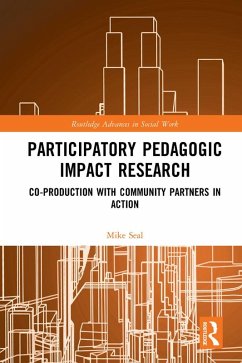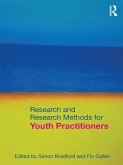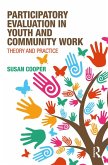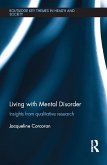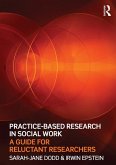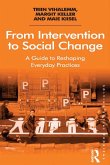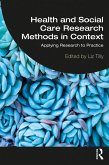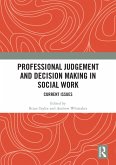Mike Seal
Participatory Pedagogic Impact Research (eBook, ePUB)
Co-production with Community Partners in Action
40,95 €
40,95 €
inkl. MwSt.
Sofort per Download lieferbar

20 °P sammeln
40,95 €
Als Download kaufen

40,95 €
inkl. MwSt.
Sofort per Download lieferbar

20 °P sammeln
Jetzt verschenken
Alle Infos zum eBook verschenken
40,95 €
inkl. MwSt.
Sofort per Download lieferbar
Alle Infos zum eBook verschenken

20 °P sammeln
Mike Seal
Participatory Pedagogic Impact Research (eBook, ePUB)
Co-production with Community Partners in Action
- Format: ePub
- Merkliste
- Auf die Merkliste
- Bewerten Bewerten
- Teilen
- Produkt teilen
- Produkterinnerung
- Produkterinnerung

Bitte loggen Sie sich zunächst in Ihr Kundenkonto ein oder registrieren Sie sich bei
bücher.de, um das eBook-Abo tolino select nutzen zu können.
Hier können Sie sich einloggen
Hier können Sie sich einloggen
Sie sind bereits eingeloggt. Klicken Sie auf 2. tolino select Abo, um fortzufahren.

Bitte loggen Sie sich zunächst in Ihr Kundenkonto ein oder registrieren Sie sich bei bücher.de, um das eBook-Abo tolino select nutzen zu können.
This book, aimed at academics and health and social care organisations, argues that the most meaningful and successful way to involve people is to engage them in researching their own lives. This book outlines a participatory, educational model of research which achieves this, and which impacts positively on the organisations' overall culture.
- Geräte: eReader
- mit Kopierschutz
- eBook Hilfe
Andere Kunden interessierten sich auch für
![Research and Research Methods for Youth Practitioners (eBook, ePUB) Research and Research Methods for Youth Practitioners (eBook, ePUB)]() Research and Research Methods for Youth Practitioners (eBook, ePUB)38,95 €
Research and Research Methods for Youth Practitioners (eBook, ePUB)38,95 €![Participatory Evaluation in Youth and Community Work (eBook, ePUB) Participatory Evaluation in Youth and Community Work (eBook, ePUB)]() Susan CooperParticipatory Evaluation in Youth and Community Work (eBook, ePUB)38,95 €
Susan CooperParticipatory Evaluation in Youth and Community Work (eBook, ePUB)38,95 €![Living with Mental Disorder (eBook, ePUB) Living with Mental Disorder (eBook, ePUB)]() Jacqueline CorcoranLiving with Mental Disorder (eBook, ePUB)31,95 €
Jacqueline CorcoranLiving with Mental Disorder (eBook, ePUB)31,95 €![Practice-Based Research in Social Work (eBook, ePUB) Practice-Based Research in Social Work (eBook, ePUB)]() Sarah-Jane DoddPractice-Based Research in Social Work (eBook, ePUB)41,95 €
Sarah-Jane DoddPractice-Based Research in Social Work (eBook, ePUB)41,95 €![From Intervention to Social Change (eBook, ePUB) From Intervention to Social Change (eBook, ePUB)]() Triin VihalemmFrom Intervention to Social Change (eBook, ePUB)42,95 €
Triin VihalemmFrom Intervention to Social Change (eBook, ePUB)42,95 €![Health and Social Care Research Methods in Context (eBook, ePUB) Health and Social Care Research Methods in Context (eBook, ePUB)]() Health and Social Care Research Methods in Context (eBook, ePUB)36,95 €
Health and Social Care Research Methods in Context (eBook, ePUB)36,95 €![Professional Judgement and Decision Making in Social Work (eBook, ePUB) Professional Judgement and Decision Making in Social Work (eBook, ePUB)]() Professional Judgement and Decision Making in Social Work (eBook, ePUB)42,95 €
Professional Judgement and Decision Making in Social Work (eBook, ePUB)42,95 €-
-
-
This book, aimed at academics and health and social care organisations, argues that the most meaningful and successful way to involve people is to engage them in researching their own lives. This book outlines a participatory, educational model of research which achieves this, and which impacts positively on the organisations' overall culture.
Dieser Download kann aus rechtlichen Gründen nur mit Rechnungsadresse in A, B, BG, CY, CZ, D, DK, EW, E, FIN, F, GR, HR, H, IRL, I, LT, L, LR, M, NL, PL, P, R, S, SLO, SK ausgeliefert werden.
Produktdetails
- Produktdetails
- Verlag: Taylor & Francis eBooks
- Seitenzahl: 260
- Erscheinungstermin: 14. Juni 2018
- Englisch
- ISBN-13: 9781317532910
- Artikelnr.: 56833850
- Verlag: Taylor & Francis eBooks
- Seitenzahl: 260
- Erscheinungstermin: 14. Juni 2018
- Englisch
- ISBN-13: 9781317532910
- Artikelnr.: 56833850
- Herstellerkennzeichnung Die Herstellerinformationen sind derzeit nicht verfügbar.
Mike Seal is Head of Criminology and Youth and Community Work, and a reader in Critical Pedagogy at Newman University Birmingham. He has worked in the social care field for over 25 years as a worker, manager, trainer and consultant. He has written seven previous books including Not About Us Without Us: Client Involvement in Supported Housing, as well as over 30 articles in professional and academic publications. He has conducted 25 major funded pieces of research, all of which were grounded in participatory approaches. He has spoken at more than 80 worldwide academic and professional conferences on co-production and participatory research, and conducted over 25 major pieces of consultancy work in the area.
List of figures; List of tables; Introduction: the de-mystification and
democratisation of research; Part 1. The Co-production of knowledge with
community partners: Dilemmas and debates; Chapter 1: Emperor's old clothes:
re- contesting the involvement of community partners; Chapter 2: The
tyranny of transformation: Debates and dilemmas within participatory
research; Chapter 3: Peer research: epistemological symbolism, proxy trust,
conscious partiality and the near-pee; Chapter 4: PPIR's Key Claim: Towards
critical pedagogic reflective spaces; Part 2. Participatory Pedagogic
Impact Research: towards a process; Chapter 5: Meaningful organisational
impact: winning stakeholders over to the process; Chapter 6: Ethical
considerations in PPCR: negotiating power and position; Chapter 7: Defining
your terrain: Community member and Issue identification; Chapter 8:
Methodology in action: transforming participant knowledge; Chapter 9:
Analysis: grounding your data in community; Chapter 10: Dissemination and
impact: accounting for and privileging process; Part 3. Notes from the
field: research in action; Chapter 11: Reflection on peer and participatory
research within a homelessness self-help organisation. (Simone Helleren);
Chapter 12: Courage of our convictions: Peer research in the criminal
justice system. (with Beth Coyne); Chapter 13: The Absent lens of the peer
researcher: reflections on and beyond a research project into youth
violence. (Richard Campbell); Chapter 14: From Relationships to Impact in
Community-University Partnerships (Randy Stoecker, Karen Reece, and Taylor
Konkle); Chapter 15: Using Volunteer-employed Photography: Seeing St
David's Peninsula through the eyes of locals and tourists (Nika Balomenou &
Brian Garrod); Conclusion: toward truly ethical co-productive research.;
Index
democratisation of research; Part 1. The Co-production of knowledge with
community partners: Dilemmas and debates; Chapter 1: Emperor's old clothes:
re- contesting the involvement of community partners; Chapter 2: The
tyranny of transformation: Debates and dilemmas within participatory
research; Chapter 3: Peer research: epistemological symbolism, proxy trust,
conscious partiality and the near-pee; Chapter 4: PPIR's Key Claim: Towards
critical pedagogic reflective spaces; Part 2. Participatory Pedagogic
Impact Research: towards a process; Chapter 5: Meaningful organisational
impact: winning stakeholders over to the process; Chapter 6: Ethical
considerations in PPCR: negotiating power and position; Chapter 7: Defining
your terrain: Community member and Issue identification; Chapter 8:
Methodology in action: transforming participant knowledge; Chapter 9:
Analysis: grounding your data in community; Chapter 10: Dissemination and
impact: accounting for and privileging process; Part 3. Notes from the
field: research in action; Chapter 11: Reflection on peer and participatory
research within a homelessness self-help organisation. (Simone Helleren);
Chapter 12: Courage of our convictions: Peer research in the criminal
justice system. (with Beth Coyne); Chapter 13: The Absent lens of the peer
researcher: reflections on and beyond a research project into youth
violence. (Richard Campbell); Chapter 14: From Relationships to Impact in
Community-University Partnerships (Randy Stoecker, Karen Reece, and Taylor
Konkle); Chapter 15: Using Volunteer-employed Photography: Seeing St
David's Peninsula through the eyes of locals and tourists (Nika Balomenou &
Brian Garrod); Conclusion: toward truly ethical co-productive research.;
Index
List of figures; List of tables; Introduction: the de-mystification and
democratisation of research; Part 1. The Co-production of knowledge with
community partners: Dilemmas and debates; Chapter 1: Emperor's old clothes:
re- contesting the involvement of community partners; Chapter 2: The
tyranny of transformation: Debates and dilemmas within participatory
research; Chapter 3: Peer research: epistemological symbolism, proxy trust,
conscious partiality and the near-pee; Chapter 4: PPIR's Key Claim: Towards
critical pedagogic reflective spaces; Part 2. Participatory Pedagogic
Impact Research: towards a process; Chapter 5: Meaningful organisational
impact: winning stakeholders over to the process; Chapter 6: Ethical
considerations in PPCR: negotiating power and position; Chapter 7: Defining
your terrain: Community member and Issue identification; Chapter 8:
Methodology in action: transforming participant knowledge; Chapter 9:
Analysis: grounding your data in community; Chapter 10: Dissemination and
impact: accounting for and privileging process; Part 3. Notes from the
field: research in action; Chapter 11: Reflection on peer and participatory
research within a homelessness self-help organisation. (Simone Helleren);
Chapter 12: Courage of our convictions: Peer research in the criminal
justice system. (with Beth Coyne); Chapter 13: The Absent lens of the peer
researcher: reflections on and beyond a research project into youth
violence. (Richard Campbell); Chapter 14: From Relationships to Impact in
Community-University Partnerships (Randy Stoecker, Karen Reece, and Taylor
Konkle); Chapter 15: Using Volunteer-employed Photography: Seeing St
David's Peninsula through the eyes of locals and tourists (Nika Balomenou &
Brian Garrod); Conclusion: toward truly ethical co-productive research.;
Index
democratisation of research; Part 1. The Co-production of knowledge with
community partners: Dilemmas and debates; Chapter 1: Emperor's old clothes:
re- contesting the involvement of community partners; Chapter 2: The
tyranny of transformation: Debates and dilemmas within participatory
research; Chapter 3: Peer research: epistemological symbolism, proxy trust,
conscious partiality and the near-pee; Chapter 4: PPIR's Key Claim: Towards
critical pedagogic reflective spaces; Part 2. Participatory Pedagogic
Impact Research: towards a process; Chapter 5: Meaningful organisational
impact: winning stakeholders over to the process; Chapter 6: Ethical
considerations in PPCR: negotiating power and position; Chapter 7: Defining
your terrain: Community member and Issue identification; Chapter 8:
Methodology in action: transforming participant knowledge; Chapter 9:
Analysis: grounding your data in community; Chapter 10: Dissemination and
impact: accounting for and privileging process; Part 3. Notes from the
field: research in action; Chapter 11: Reflection on peer and participatory
research within a homelessness self-help organisation. (Simone Helleren);
Chapter 12: Courage of our convictions: Peer research in the criminal
justice system. (with Beth Coyne); Chapter 13: The Absent lens of the peer
researcher: reflections on and beyond a research project into youth
violence. (Richard Campbell); Chapter 14: From Relationships to Impact in
Community-University Partnerships (Randy Stoecker, Karen Reece, and Taylor
Konkle); Chapter 15: Using Volunteer-employed Photography: Seeing St
David's Peninsula through the eyes of locals and tourists (Nika Balomenou &
Brian Garrod); Conclusion: toward truly ethical co-productive research.;
Index
